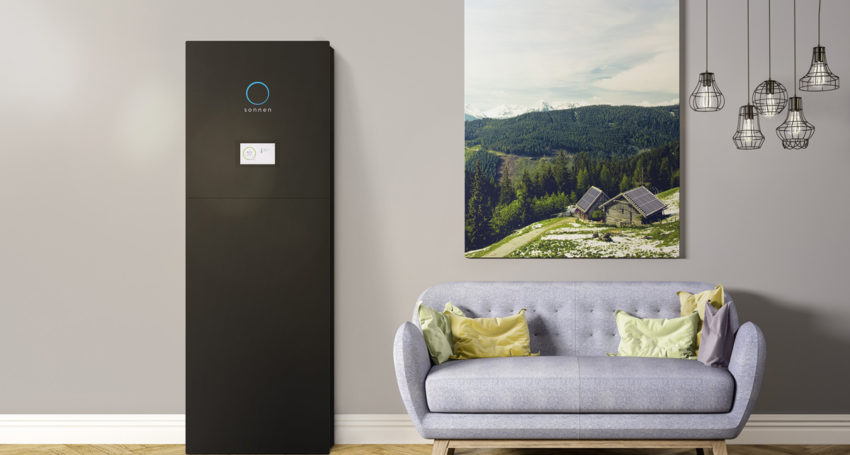In late October 2018 the South Australian (SA) Government inaugurated its landmark $100 million Home Battery Scheme (HBS) to subsidise the cost of buying a home energy storage system. Half a year later and HBS was expanded to include rental properties, property developers and aged care facilities. And now the scheme is being opened up to new home buyers who will be able to install solar and battery systems on their new builds.
This new rule change means developers can receive the HBS subsidy for the installation of batteries on new builds with a window of up to twelve months, an improvement on the previous standard of six months which is hardly enough time to actually build a home in which to install a battery. The solar and battery systems will be offered to new home buyers for no additional cost.
“This latest development in the $100 million Home Battery Scheme will turbo charge the take up of home solar and battery systems,” said Minister for Energy and Mining Dan van Holst Pellekaan, “delivering savings on electricity bills for new home owners and benefits to the grid.”
“Thousands of South Australians have already slashed their electricity bills with batteries, so it’s great news that the Scheme is now accessible to people purchasing a new home.”
Under HBS South Australians can buy any battery they like as long as it meets requirements of safety, reliability and virtual power plant (VPP) integration. After SA committed to manufacture batteries locally, Sonnen, Alpha ESS, and Eguana Technologies had access to the scheme’s priority period that lasted by the end of last year. Since then, the list of battery brands has grown significantly to include: Tesla, LG Chem, Enphase, BYD, Redback, Varta, Senec, Suntech, Pylontech and Solax.
Over 6,000 HBS subsidies have already been approved by the SA Government.
The SA Government’s announcement of the HBS expansion has been complemented by a promise from the Stoddart Group, one of the country’s leading suppliers of building products to the residential building industry, that with the help of energy retailer Powershop and technology provider Reposit, it will take advantage of HBS to install 2000 6.5kW solar systems and 11.6kWh SolaX Power batteries on new homes built in SA in 2020, and more than 10,000 over the next four years to form the Stoddart Virtual Power Plant, one of the largest VPPs in the world.
This is not the first tome the Stoddart Group has thought to take advantage of solar and battery subsidies to push the transition to renewables at the forefront of construction. In Queensland Stoddart Group and its partners in Powershop and Reposit have ambitions to install 15,000 solar PV systems on rental homes utilising the Queensland Government’s Affordable Energy Plan.
Pellekaan noted that the Stoddart VPP is the equivalent to more than 100 MWh of new storage, a major support to the grid. “As well as helping to stabilise the grid, Stoddart’s battery Virtual Power Plant will offer new home buyers discounted power and will provide protection during an outage,” continued Pellekaan. “South Australia’s transition to a renewables-based economy needs commitment from industry as well as government and I applaud the Stoddart Group for this exciting new initiative.”
The Stoddart Group is looking to transform new houses into ‘smart homes.’ “We are committed in continuing to expand and diversify our innovation stream of solutions in the Australian construction market with our focus to ‘building the future of building’,” said Adam Taylor, GM Energy at the Stoddart Group.
Catherine Anderson, interim CEO of Powershop Australia, sees the Stoddart Group VPP and the HBS expansion as another positive step in providing Australians with energy independence. “Consumers deserve to feel in control of their energy bills and also the opportunity to play a role in Australia’s energy transition.”
Of course, the Stoddart Group VPP will join a host of other VPPs already active in the South Australian market, including AGL, ShineHUB, Simply Energy, EnergyAustralia, Sonnen and Tesla.
This content is protected by copyright and may not be reused. If you want to cooperate with us and would like to reuse some of our content, please contact: editors@pv-magazine.com.









4 comments
By submitting this form you agree to pv magazine using your data for the purposes of publishing your comment.
Your personal data will only be disclosed or otherwise transmitted to third parties for the purposes of spam filtering or if this is necessary for technical maintenance of the website. Any other transfer to third parties will not take place unless this is justified on the basis of applicable data protection regulations or if pv magazine is legally obliged to do so.
You may revoke this consent at any time with effect for the future, in which case your personal data will be deleted immediately. Otherwise, your data will be deleted if pv magazine has processed your request or the purpose of data storage is fulfilled.
Further information on data privacy can be found in our Data Protection Policy.